The PESOS Model: A Comprehensive Framework For Digital Marketing
In today’s rapidly evolving digital landscape, businesses are constantly seeking innovative approaches to effectively connect with their target audience. The PESOS Model, developed by Gini Dietrich, emerges as a comprehensive and adaptable framework that empowers marketers to navigate the complexities of digital marketing and achieve tangible results.
Digital marketing is a multifaceted and ever-changing field, presenting marketers with numerous challenges. Coordinating disparate channels, optimizing content for various platforms, and measuring return on investment (ROI) can be overwhelming. The PESOS Model provides a structured approach, addressing these challenges by integrating traditional and emerging digital marketing techniques.
The PESOS Model encompasses five interconnected elements: Paid Media, Earned Media, Shared Media, Owned Media, and Social Media. By leveraging this framework, marketers can create cohesive and impactful digital marketing campaigns that drive brand awareness, generate leads, and foster customer engagement.
The PESOS Model: A Comprehensive Framework For Digital Marketing
The PESOS Model is designed to help marketers plan and execute effective digital marketing campaigns. It provides a framework for integrating paid, earned, shared, owned, and social media channels to achieve specific marketing goals.
One of the key benefits of the PESOS Model is that it allows marketers to track and measure the results of their campaigns. By understanding the impact of each channel, marketers can make informed decisions about where to allocate their resources.
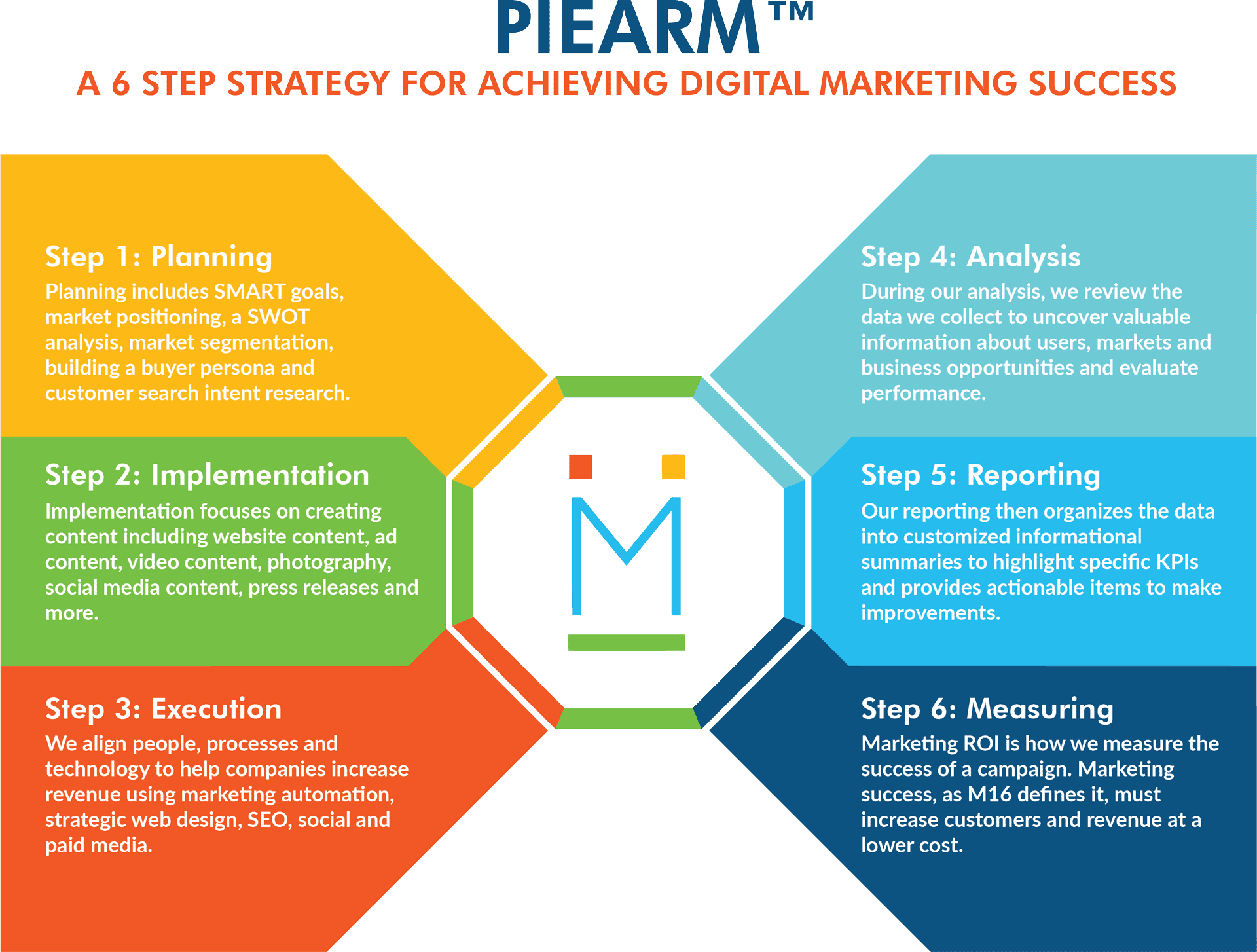
Digital Marketing Strategy Framework | The 6 Step Plan for Growth – Source m16marketing.com
The PESOS Model is a valuable tool for marketers who want to improve the effectiveness of their digital marketing campaigns. By following the steps outlined in the model, marketers can develop and execute campaigns that are more likely to achieve their goals.
What is The PESOS Model: A Comprehensive Framework For Digital Marketing?
The PESOS Model is a comprehensive framework for digital marketing that helps marketers plan, execute, and measure their campaigns. The model is based on the idea that there are five key elements to a successful digital marketing campaign: paid media, earned media, shared media, owned media, and social media.
Paid media refers to any type of advertising that you pay for, such as Google AdWords or Facebook ads. Earned media refers to any type of publicity that you get for free, such as being featured in a news article or blog post. Shared media refers to any type of content that you share with others, such as social media posts or blog comments. Owned media refers to any type of content that you own, such as your website or blog.
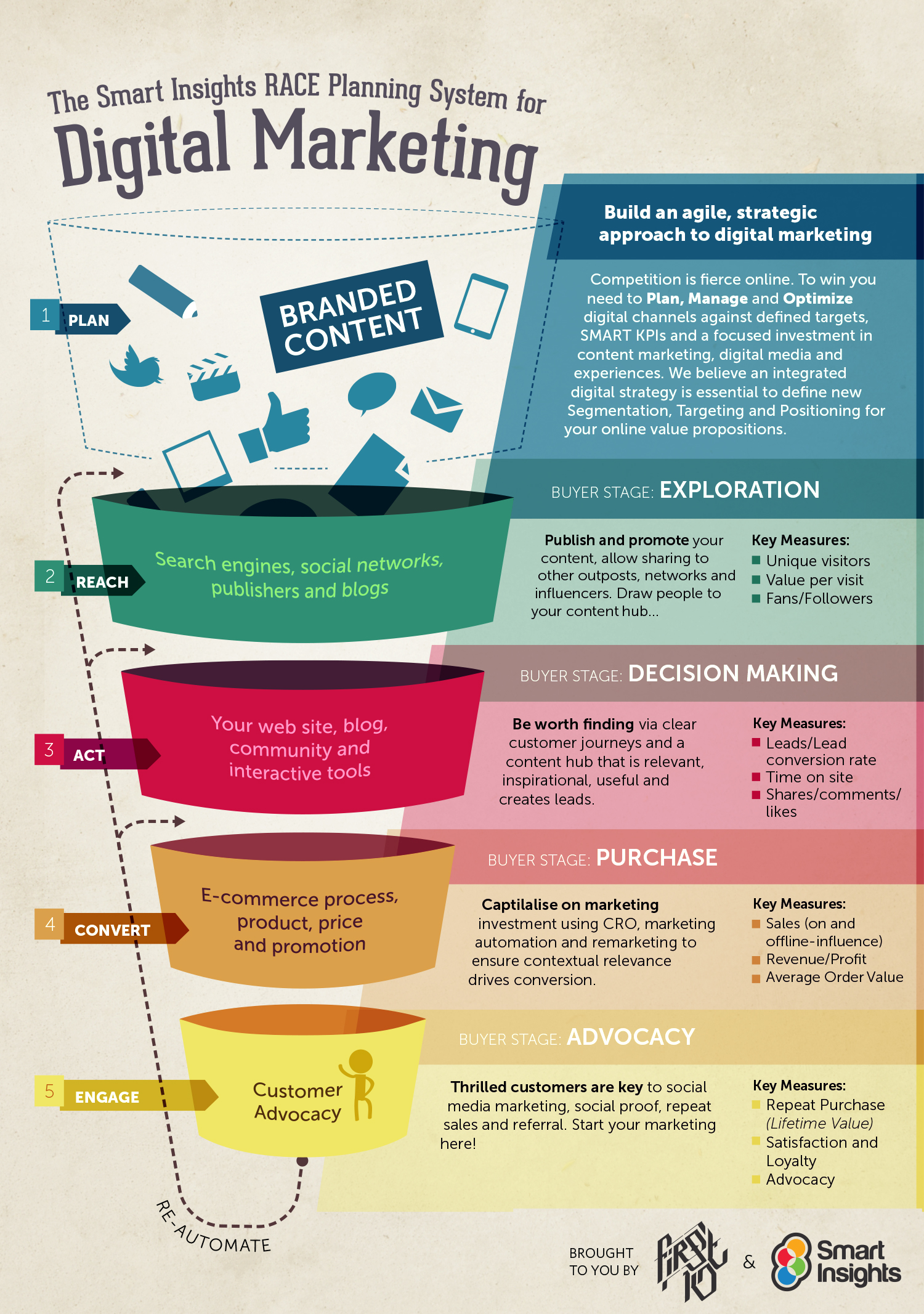
RACE marketing model definition – What is? – Digital marketing Glossary – Source tvsiyengar.com
Social media refers to any type of online platform that allows users to interact with each other, such as Facebook, Twitter, or LinkedIn.
History and Myth of The PESOS Model: A Comprehensive Framework For Digital Marketing
The PESOS Model was developed by Gini Dietrich in 2013. Dietrich is a public relations and marketing consultant who has written extensively about the PESOS Model. The model has been widely adopted by marketers around the world and has become a standard framework for planning and executing digital marketing campaigns.
There are many myths about the PESOS Model. One common myth is that the model is only for large businesses. However, the model can be used by businesses of all sizes. Another common myth is that the model is only for online marketing. However, the model can be used for both online and offline marketing campaigns.
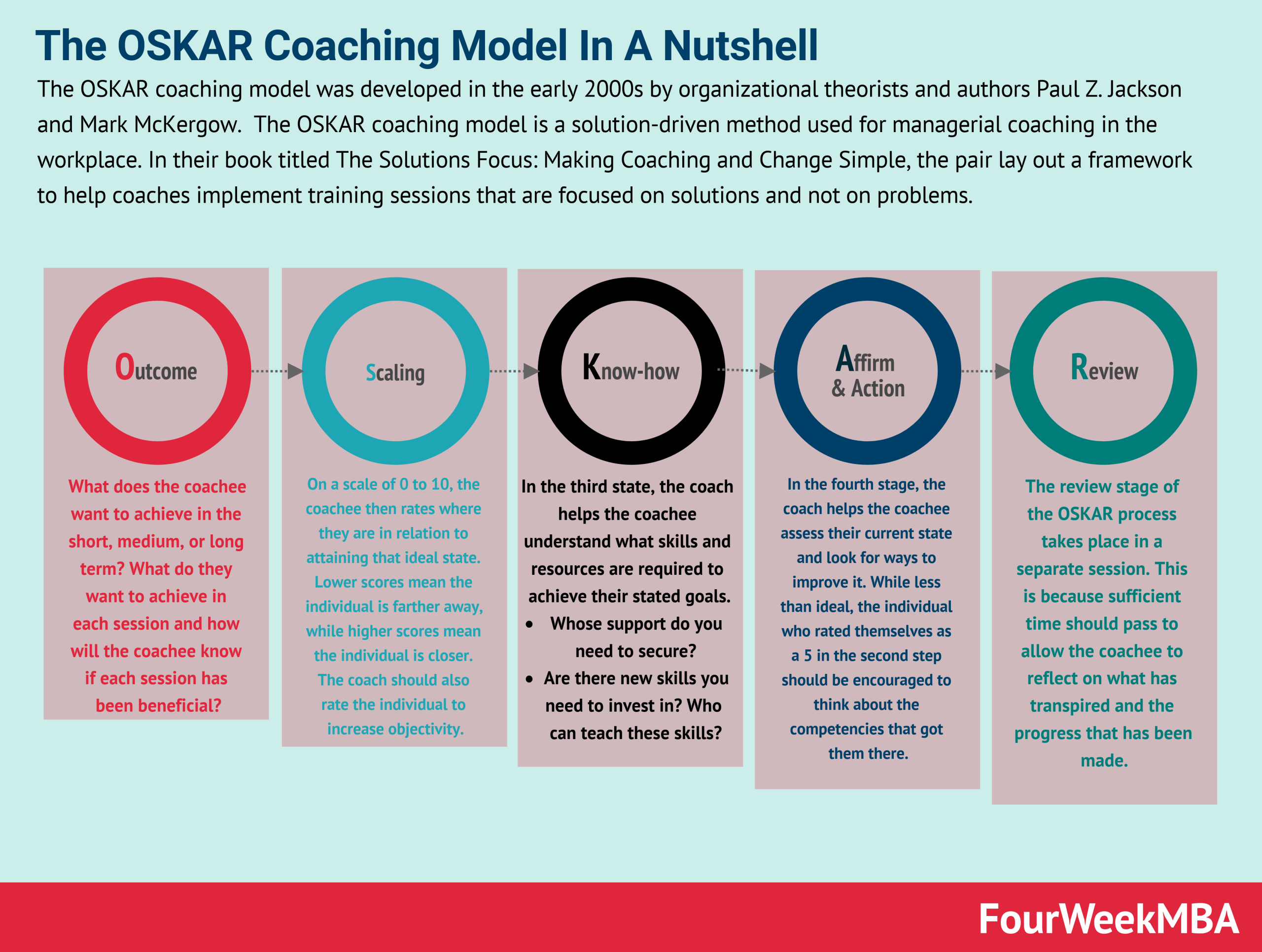
Was ist das OSKAR Coaching-Modell? Das OSKAR-Coaching-Modell in Kürze – Source fourweekmba.com
The PESOS Model is a comprehensive framework that can help marketers plan and execute effective digital marketing campaigns. The model is based on the idea that there are five key elements to a successful digital marketing campaign: paid media, earned media, shared media, owned media, and social media.
Hidden Secret of The PESOS Model: A Comprehensive Framework For Digital Marketing
The PESOS Model is a powerful tool that can help marketers achieve their digital marketing goals. However, there are some hidden secrets to the model that can make it even more effective.
One of the hidden secrets of the PESOS Model is that it is not a linear model. In other words, you do not have to start with paid media and then move on to earned media, shared media, owned media, and social media. You can start with any element of the model and then move on to the others. This flexibility allows you to tailor the model to your specific needs and goals.
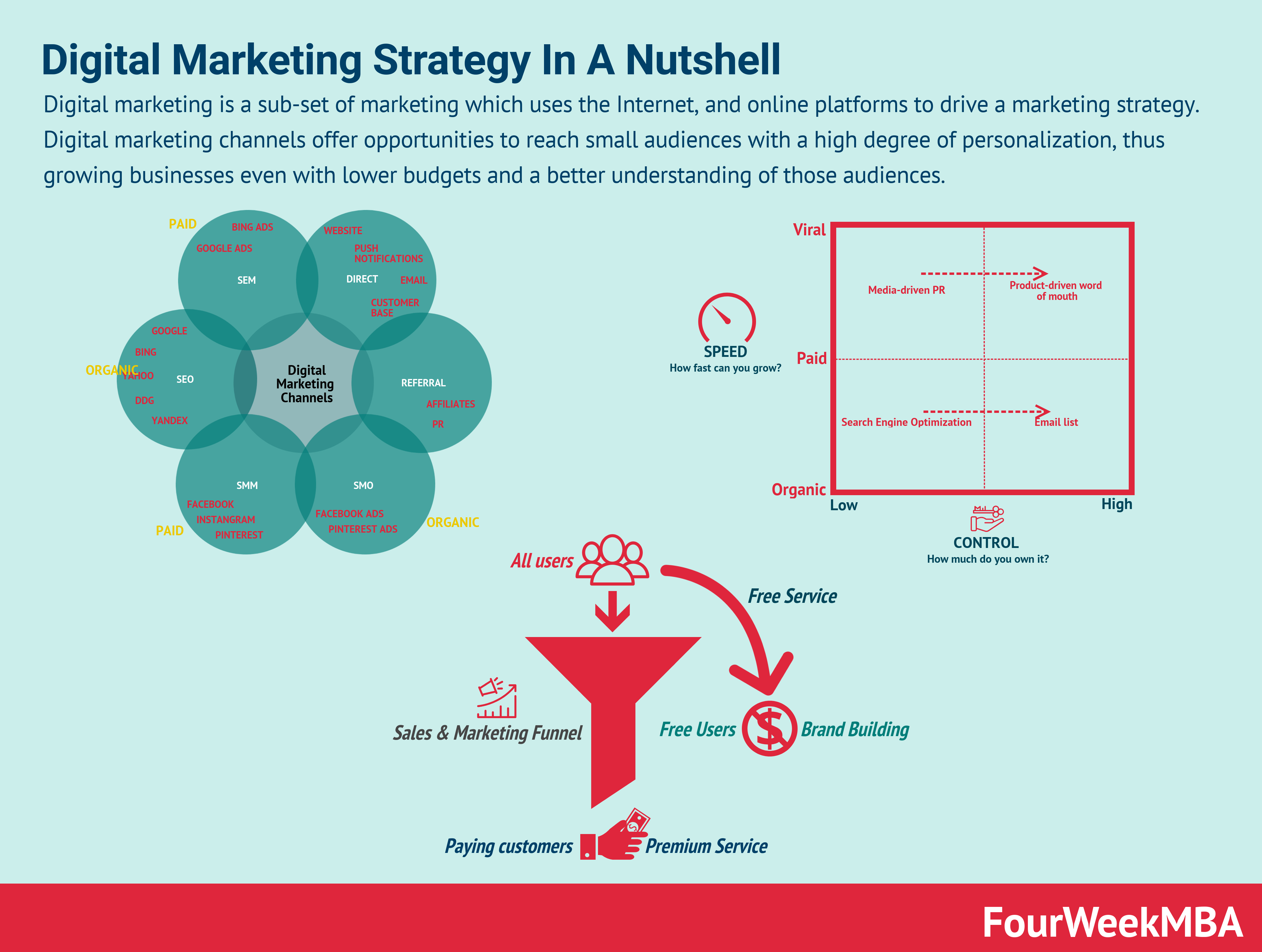
How To Build A Digital Marketing Strategy For Long-Term Success – Source fourweekmba.com
Another hidden secret of the PESOS Model is that it is not a one-size-fits-all model. The model can be used by businesses of all sizes and in all industries. The key is to adapt the model to your specific needs and goals.
Recommendation of The PESOS Model: A Comprehensive Framework For Digital Marketing
The PESOS Model is a comprehensive framework that can help marketers plan, execute, and measure their digital marketing campaigns. The model is based on the idea that there are five key elements to a successful digital marketing campaign: paid media, earned media, shared media, owned media, and social media.
I highly recommend the PESOS Model to marketers of all levels of experience. The model is easy to understand and use, and it can help you achieve your digital marketing goals.

Internationalization Lab | Office of Academic Affairs – Source www.lsu.edu
Here are a few tips for using the PESOS Model:
- Start by defining your goals and objectives.
- Determine which elements of the PESOS Model are most relevant to your goals.
- Develop a plan for how you will use each element of the model.
- Track your results and make adjustments as needed.
The PESOS Model and Content Marketing
The PESOS Model can be used to develop effective content marketing campaigns. Content marketing is the process of creating and distributing valuable, relevant, and consistent content to attract and retain a clearly defined audience and drive profitable customer action.
The PESOS Model can help you to:
- Identify the right content for your target audience.
- Create content that is shareable and engaging.
- Promote your content through paid media, earned media, shared media, owned media, and social media.
- Track the results of your content marketing campaigns.
Tips of The PESOS Model: A Comprehensive Framework For Digital Marketing
Here are a few tips for using the PESOS Model to improve your digital marketing:
- Use a mix of paid, earned, shared, owned, and social media channels to reach your target audience.
- Create high-quality content that is relevant and valuable to your audience.
- Promote your content through a variety of channels to get it in front of as many people as possible.
- Track your results and make adjustments to your strategy as needed.
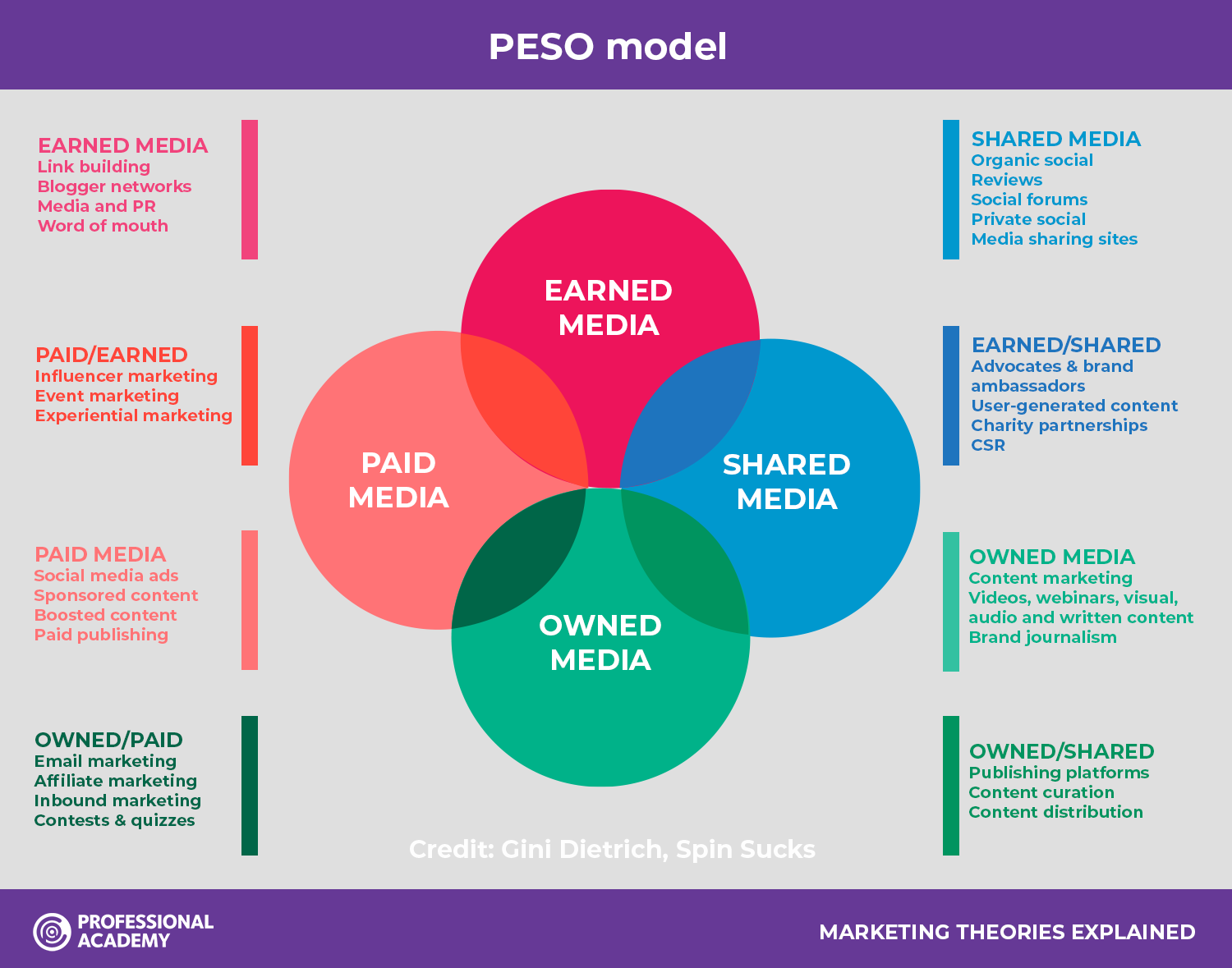
PESO MODEL – School of Information Systems – Source sis.binus.ac.id
By following these tips, you can use the PESOS Model to improve your digital marketing results and achieve your goals.
The PESOS Model and Social Media Marketing
The PESOS Model can be used to develop effective social media marketing campaigns. Social media marketing is the process of using social media platforms to promote a product or service. The PESOS Model can help you to:
- Identify the right social media platforms for your target audience.
- Create social media content that is engaging and shareable.
- Promote your social media content through paid media, earned media, shared media, owned media, and social media.
- Track the results of your social media marketing campaigns.
Fun Facts of The PESOS Model: A Comprehensive Framework For Digital Marketing
Here are a few fun facts about the PESOS Model:
- The PESOS Model was developed by Gini Dietrich in 2013.
- The model is named after the five key elements of a successful digital marketing campaign: paid media, earned media, shared media, owned media, and social media.
- The PESOS Model has been widely adopted by marketers around the world.
- The model is used by businesses of all sizes and in all industries.

How the PESO model may change the way you think about PR – Source www.axiapr.com
The PESOS Model is a powerful tool that can help marketers achieve their digital marketing goals.
How to Create a PESOS Model
Creating a PESOS Model is a simple process. First, you need to identify your goals and objectives. What do you want to achieve with your digital marketing campaign?
Once you have identified your goals, you need to determine which elements of the PESOS Model are most relevant to your goals. For example, if you want to increase brand awareness, you may want to focus on paid media and social media.
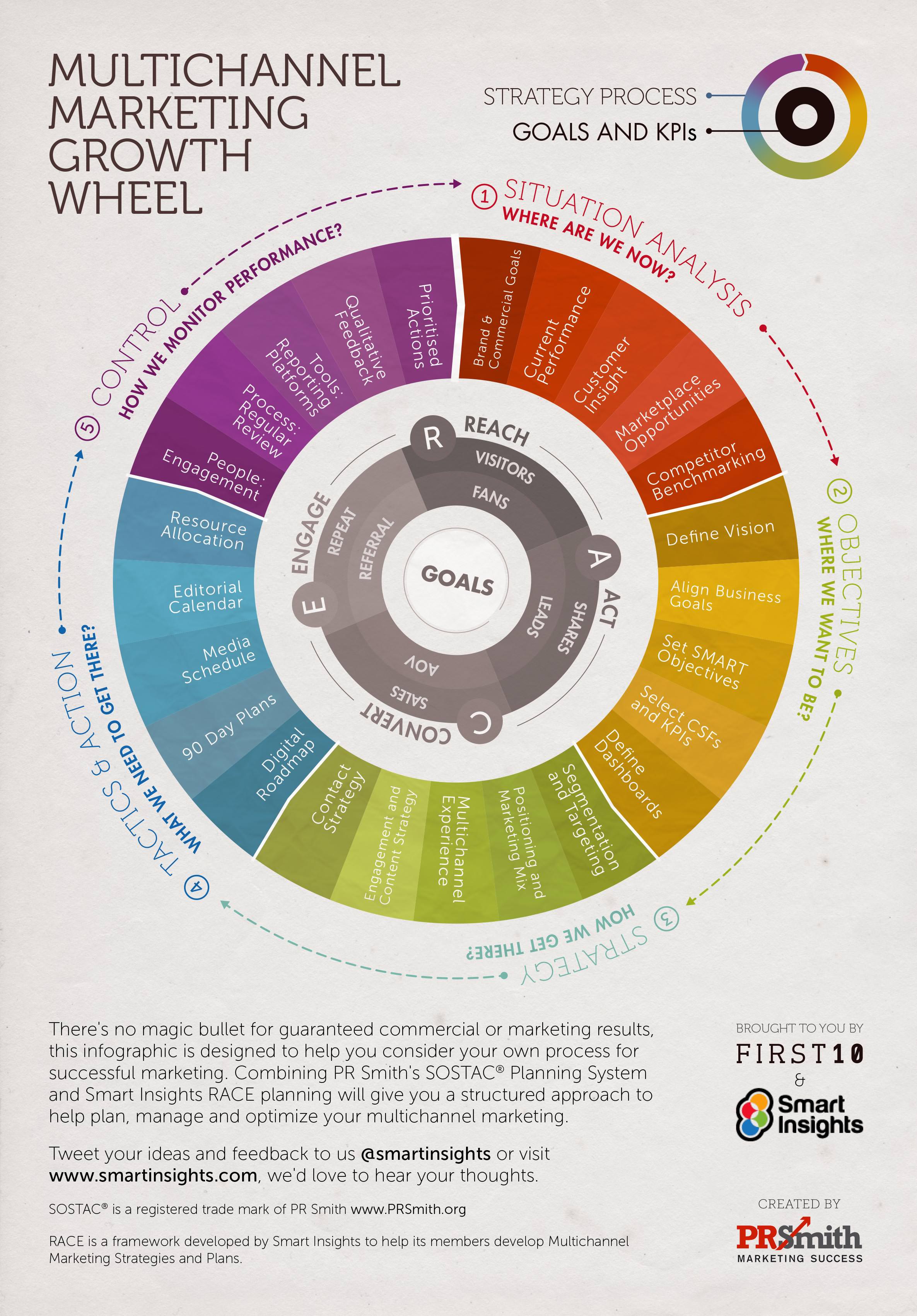
Nova Zelândia Apresenta Bolsas Integrais Para Pós, Mestrado E Doutorado – Source ducklawyer0.hatenablog.com
Once you have determined which elements of the PESOS Model you want to use, you need to develop a plan for how you will use each element. For





